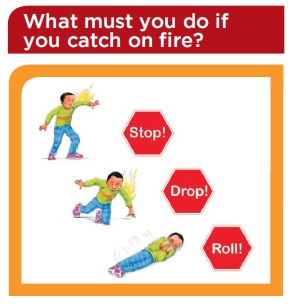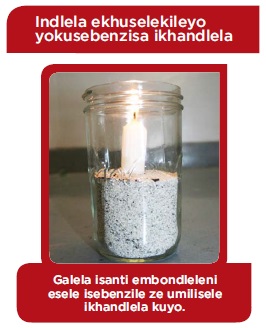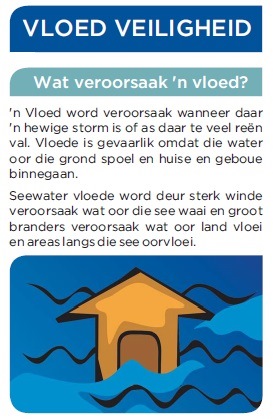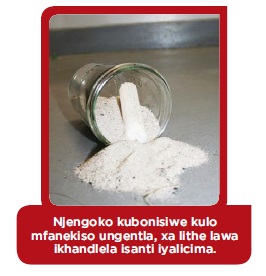You are here
Fire and Flood Awareness Campaign
(Western Cape Government)

What to do when there is a fire
- Get out of the house and stay out.
- Crawl on your hands and knees under the smoke.
- Don't try to gather photo albums or passports – rather get out.
- Once outside, never try to go back into the house to fetch a pet or anything else.
What to do if your clothes catch on fire
- Stop. Never run.
- Drop and then cover your face with your hands.
- Roll to put out the flames
- If someone is burnt, gently pour cold water onto the burn. If the burn is over a large area keep the person warm as they can go into shock.
- Get medical attention for any type of burn.

How to use paraffin safely
- Keep paraffin and matches in areas that children cannot reach.
- Store paraffin in a glass bottle -never use milk cartons or cool drink bottles.
- Turn appliances off and put out all flames when you leave home or go to sleep.
- Use sand to extinguish paraffin fires, not water! Keep a bucket of sand nearby.
- If a child swallows paraffin, don't give them anything to eat or drink. Never force them to vomit. Take the child to the doctor immediately.
 |
|
Plan ahead
- Have a fire safety plan and make sure that everyone knows how to evacuate the home during a fire.
- Know your emergency numbers: 10177 from a landline and 112 from a cellphone
What is a flood?

Here are some important flood tips to help you and your family:
- Get to know your community's emergency plans, warning signals, evacuation routes and locations of emergency shelters.
- During severe storms, listen to your local radio or TV stations. Stay up-to-date on possible flood warnings and reports of flooding in progress.
- Be prepared to evacuate quickly. Have all your essential items gathered in advance.
- Head for higher ground. If you are outside or in your home and a flood takes place, you should always look for higher ground.
- Avoid flood waters. If you are driving and come upon a flooded road, turn around and drive the other way.
- Be careful in the dark. Evacuating in the evening is very dangerous as flood hazards may be hard to see.
- Be aware of electricity and animals in flood water when cleaning up after a flood.
Calling for help
- From a cellphone call 112
- From a landline call 10177
- When you phone, give the full address and a landmark such as a shop or school close to the flood or fire to help emergency service providers to find you quickly.
Downloads
- Pamphlets (children)
English
Afrikaans
isiXhosa - Pamphlets (adults)
English
Afrikaans
isiXhosa - Bookmark
- Poster
Fire Safety Programmes
The content on this page was last updated on 30 November 2022
416
2022-11-30
2024-09-26



